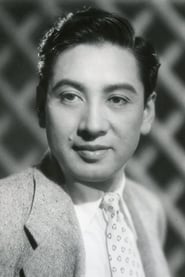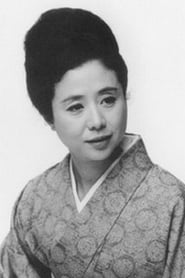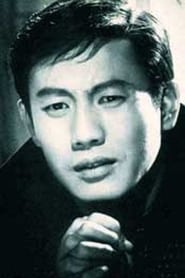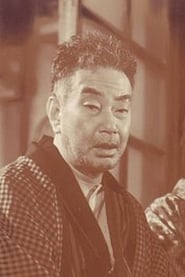
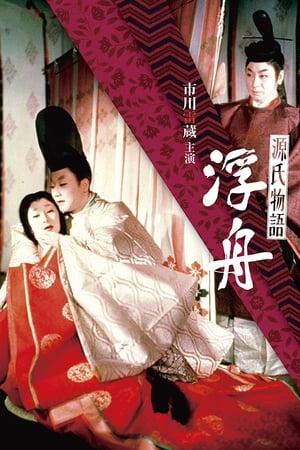
Floating Vessel(1957)
Floating Vessel (源氏物語 浮舟 , Ukifune) is a 1957 color Japanese film directed by Teinosuke Kinugasa. Drawn from parts of the famous Genji monogatari by Lady Murasaki.

Movie: Floating Vessel
Top 8 Billed Cast

源氏物語 浮舟
HomePage
Overview
Floating Vessel (源氏物語 浮舟 , Ukifune) is a 1957 color Japanese film directed by Teinosuke Kinugasa. Drawn from parts of the famous Genji monogatari by Lady Murasaki.
Release Date
1957-04-29
Average
0
Rating:
0.0 startsTagline
Genres
Languages:
日本語Keywords
Similar Movies
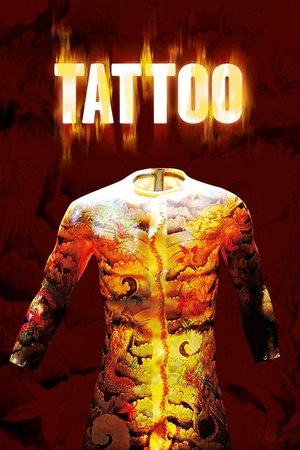 6.1
6.1Tattoo(de)
Marc Schrader, a rookie cop caught red-handed with drugs in a police raid of an illegal rave, joins a homicide investigation conducted by Chief Inspector Minks. The victim is a naked young woman with the skin stripped off her back, killed as she staggered into traffic. As Schrader and Minks investigate the murder, the case is complicated by a finger found in the stomach of the victim. Forensic examination proves the finger belongs to Nobert Günzel, who was previously convicted of rape and assault. The police raid Günzel’s residence, and discover a blood-stained table with restraints and bits of human flesh in his basement. They also find video equipment and preserved, tattooed skin from the victim’s back. Soon, they found dead bodies buried in the garden. Günzel then goes missing.
 7.5
7.5Lady Snowblood(ja)
Yuki's family is nearly wiped out before she is born due to the machinations of a band of criminals. These criminals kidnap and brutalize her mother but leave her alive. Later her mother ends up in prison with only revenge to keep her alive. She creates an instrument for this revenge by purposefully getting pregnant. Yuki never knows the love of a family but only killing and revenge.
 8.5
8.5Seven Samurai(ja)
A samurai answers a village's request for protection after he falls on hard times. The town needs protection from bandits, so the samurai gathers six others to help him teach the people how to defend themselves, and the villagers provide the soldiers with food.
 5.9
5.9Dawn of the Felines(ja)
A story of three escort girls living in Ikebukuro, Tokyo. They work at the same escort service while feeling lonely in their urban lives.
 7.4
7.4Jin-Roh: The Wolf Brigade(ja)
A member of an elite paramilitary counter-terrorism unit becomes traumatized after witnessing the suicide bombing of a young girl and is forced to undergo retraining. However, unbeknownst to him, he becomes a key player in a dispute between rival police divisions, as he finds himself increasingly involved with the sister of the girl he saw die.
 7.8
7.8The Bridge on the River Kwai(en)
The classic story of English POWs in Burma forced to build a bridge to aid the war effort of their Japanese captors. British and American intelligence officers conspire to blow up the structure, but Col. Nicholson, the commander who supervised the bridge's construction, has acquired a sense of pride in his creation and tries to foil their plans.
 7.6
7.6Dolls(ja)
Dolls takes puppeteering as its overriding motif, which relates thematically to the action provided by the live characters. Chief among those tales is the story of Matsumoto and Sawako, a young couple whose relationship is about to be broken apart by the former's parents, who have insisted their son take part in an arranged marriage to his boss' daughter.
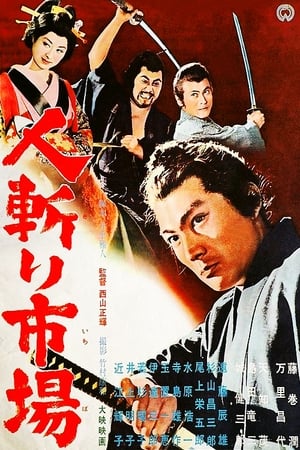 7.3
7.3Assassins for sale(ja)
Nagasaki at the end of the Edo period had the taste of a criminal paradise, where, despite the exotic, dangerous work was always in demand. Here, three wandering samurai who earn their living by killing get to know each other. Soon they learn that government officials will be transporting a large cargo of gold and decide to steal it.
 6.3
6.3The Karate Kid Part II(en)
Summoned by his dying father, Miyagi returns to his homeland of Okinawa, with Daniel, after a 40-year exile. There he must confront Yukie, the love of his youth, and Sato, his former best friend turned vengeful rival. Sato is bent on a fight to the death, even if it means the destruction of their village. Daniel finds his own love in Yukia's niece, Kumiko, and his own enemy in Sato's nephew, the vicious Chozen. Now, far away from the tournaments, cheering crowds and safety of home, Daniel will face his greatest challenge ever when the cost of honor is life itself.
 9.0
9.0Snowflowers: Seeds of Hope(ja)
A touching true story which portrays a doctor who selflessly dedicated his personal fortune to spreading the smallpox vaccination for saving people's lives.
 6.5
6.5Suicide Club(ja)
When 54 high school girls throw themselves in front of a subway train it appears to be only the beginning of a string of suicides around the country. Detective Kuroda tries to find the answer to this mystery, which isn't as simple as he had hoped.
 5.0
5.0The Blue Hearts(ja)
Six directors picked a favorite song by Japanese punk rock band "The Blue Hearts" and made a short film inspired by the song.
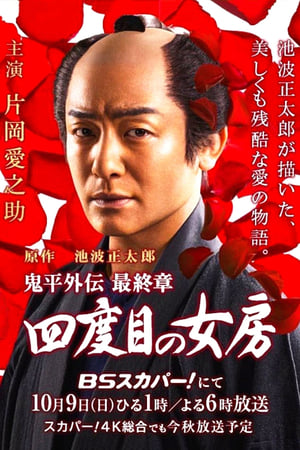 0.0
0.0Onihei side story: The Final Chapter - The Fourth Wife(ja)
Inomatsu, a carpenter with a reputation as a skilled craftsman, has a wife named Oritsu. Oritsu is deeply in love with Inomatsu and believes that the purpose of her life is to devote herself to her husband day and night. However, Oritsu is Inomatsu's fourth wife. In fact, he is a robber and thief. As a carpenter, Inomatsu usually sneaked into merchants' houses and carried out robberies. For him, wives are just a tool to deceive the public...
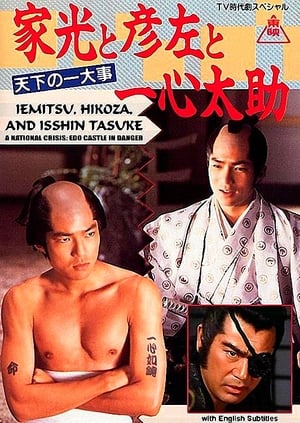 0.0
0.0Iemitsu, Hikoza and Isshin Tasuke - A National Crisis: Edo Castle in Danger(ja)
Yagyu Jubei, the finest swordsman in the land, is called upon to bare his blade to help Iemitsu keep his post. Meanwhile a fishmonger named Isshin Tasuke who bears an amazing resemblance to Shogun Iemitsu may be called upon to put his life on the line by acting as the Shogun's double. At the same time, the tragic story of Banzuiin Chobei and Mizuno Jurozaemon is unfolding.
 6.0
6.0Gung Ho(en)
When a western Pennsylvania auto plant is acquired by a Japanese company, brokering auto worker Hunt Stevenson faces the tricky challenge of mediating the assimilation of two clashing corporate cultures. At one end is the Japanese plant manager and the sycophant who is angling for his position. At the other, a number of disgruntled long-time union members struggle with the new exigencies of Japanese quality control.
 7.2
7.2A Color Print of Edo(ja)
The Color Print of Edo is a 1939 black and white Japanese silent film with benshi accompaniment directed by Kazuo Mori. It is a cheerful period drama, sprinkled with comical scenes and tells the story of a loyal and handsome Edo period servant who fights to help his older brother marry the woman he loves. The star of this film, Utaemon Ichikawa, gained enormous popularity for his portrayal of a cheerful and chivalrous man.
 7.8
7.8Kagemusha(ja)
Akira Kurosawa's lauded feudal epic presents the tale of a petty thief who is recruited to impersonate Shingen, an aging warlord, in order to avoid attacks by competing clans. When Shingen dies, his generals reluctantly agree to have the impostor take over as the powerful ruler. He soon begins to appreciate life as Shingen, but his commitment to the role is tested when he must lead his troops into battle against the forces of a rival warlord.
 8.4
8.4Harakiri(ja)
Down-on-his-luck veteran Tsugumo Hanshirō enters the courtyard of the prosperous House of Iyi. Unemployed, and with no family, he hopes to find a place to commit seppuku—and a worthy second to deliver the coup de grâce in his suicide ritual. The senior counselor for the Iyi clan questions the ronin’s resolve and integrity, suspecting Hanshirō of seeking charity rather than an honorable end. What follows is a pair of interlocking stories which lay bare the difference between honor and respect, and promises to examine the legendary foundations of the Samurai code.
 7.5
7.5When the Last Sword Is Drawn(ja)
Kanichiro Yoshimura is a Samurai and Family man who can no longer support his wife and children on the the low pay he receives from his small town clan, he is forced by the love for his family to leave for the city in search of higher pay to support them.
